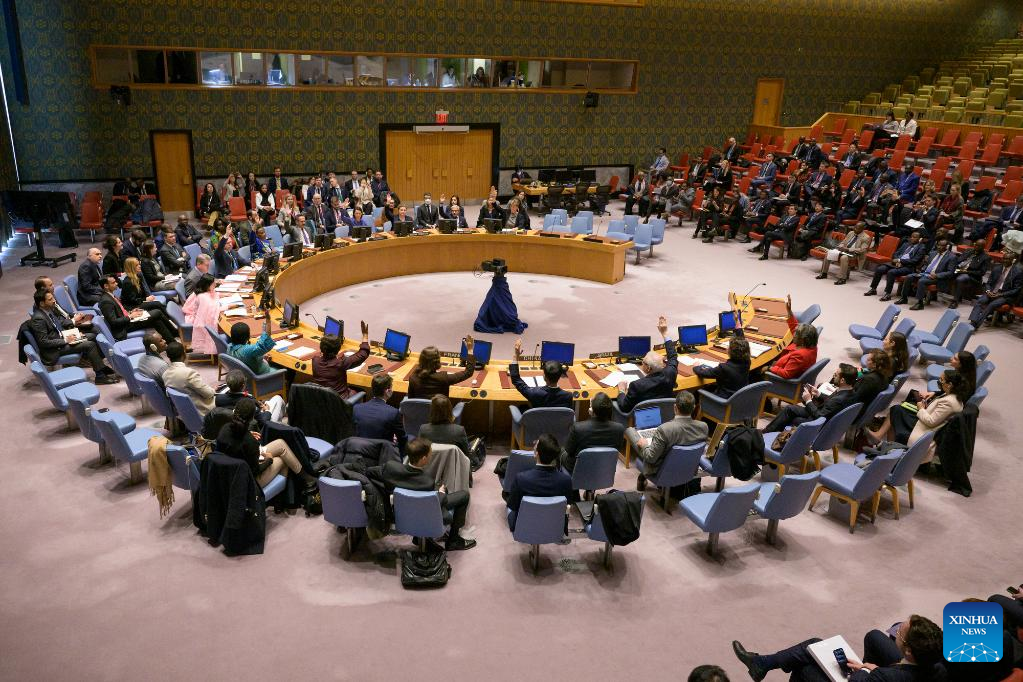
The UN Security Council adopts Resolution 2664 at the UN headquarters in New York, on Dec. 9, 2022. The UN Security Council on Friday adopted the resolution on establishing a standing humanitarian exemption to the asset freeze measures imposed by the United Nations. (Manuel Elias/UN Photo/Handout via Xinhua)
UNITED NATIONS, Dec. 9 (Xinhua) -- The UN Security Council on Friday adopted a resolution on establishing a standing humanitarian exemption to the asset freeze measures imposed by the United Nations.
Resolution 2664 decides that the provision, processing or payment of funds, other financial assets or economic resources, or the provision of goods and services necessary to ensure the timely delivery of humanitarian assistance or to support other activities that support basic human needs are permitted and are not a violation of the asset freezes imposed by the Security Council or its sanctions committees.
The humanitarian "carve-out" applies to a wide range of entities, including UN programs, funds, agencies, humanitarian organizations having observer status with the UN General Assembly, and certain nongovernmental organizations, according to the resolution.
Resolution 2664 decides that the carve-out will apply to the sanctions regime against the Islamic State and al-Qaida for a period of two years from the date of adoption of this resolution, and that the Security Council may extend the application.
It requests that the UN secretary-general issue a written report on unintended adverse humanitarian consequences of Security Council sanctions measures, including travel ban and arms embargo measures, as well as those measures that are unique to particular sanctions regimes, within 9 months of the adoption of this resolution.
It requests that the report contain recommendations on ways to minimize and mitigate such unintended adverse consequences, including via the promulgation of additional standing exemptions to such measures, and expresses the council's intent to consider further steps as necessary to further minimize and mitigate such unintended adverse consequences.
Resolution 2664 won the support of 14 of the 15 council members. India abstained. ■



